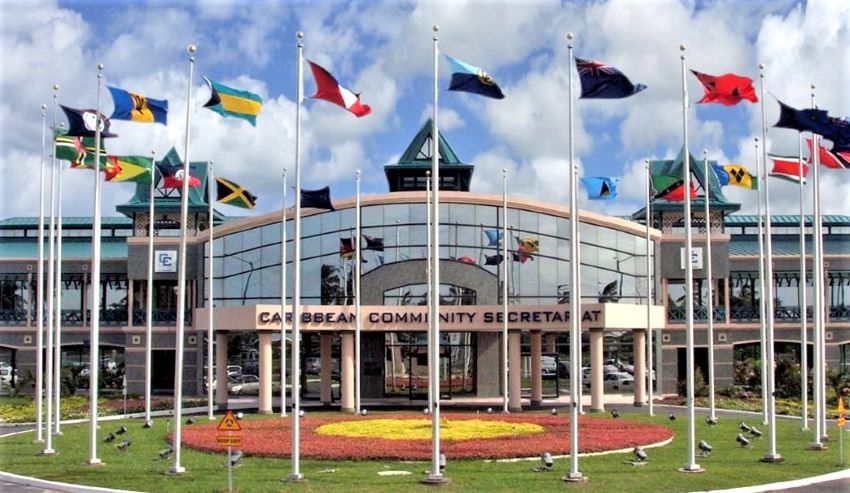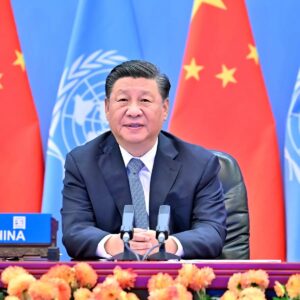
(The Gleaner, 20.Mar.2022) — A day after Russia invaded Ukraine, sending oil prices skyrocketing to heights not seen since 2014, McCarthy Marie, a former University of the West Indies economist, wondered aloud whether the United States would consider invading Venezuela, which has some of the largest oil reserves in the world.
“Given that the price of oil is going up, the war in Ukraine might prompt the Americans to attempt to seize the oil fields in Venezuela,” Marie told The Sunday Gleaner. “If it (the war) goes on for quite a while, that might give them an excuse to invade Venezuela to seize the oil.”
What the senior economist did not anticipate was Washington extending an olive branch to Nicolás Maduro, the Venezuelan president, three years after imposing a ban on the importation of Venezuelan oil to punish Maduro after he won re-election in a vote the Americans said was fraudulent.
However, faced with a shortfall of approximately 670,000 barrels a day of oil and oil products after imposing a series of sanctions on Russia following the invasion, and with prices at the pump rising sharply, causing much concern among consumers, the Biden administration sent a delegation to Caracas earlier this month to discuss the possibility of allowing Venezuelan crude oil back into the US.
To achieve this, the US will have to navigate a rather complicated political and diplomatic path, given that it does not recognise Maduro as the Venezuelan president and has indicted the Venezuelan leader on drug trafficking charges.
However, Chevron Corp, the American multinational energy corporation, is said to be planning to take operating control of its joint ventures in Venezuela should the US decide to resume trading in Venezuelan oil. And while the attempts at détente by the Biden administration are being opposed by some Republicans and Democrats, ending the sanction could lower petrol prices at home and restore Venezuela’s position as an important global oil producer.
It could also open the door for Caracas to re-establish itself as a key supplier to the Caribbean as it did with PetroCaribe, according to industry experts.
“This conflict does present an opportunity for Venezuela to play a bigger role in the whole supply side of the equation,” Gregory Maguire, an energy economist and former executive at Trinidad’s national oil company, told The Sunday Gleaner. “But that really depends a lot on what happens in the discussions with US and whether or not the US will now see it fit to lift the sanctions.”
Russia’s invasion of Ukraine is a major blow to the global economy, stymieing growth and raising inflation, the International Monetary Fund (IMF) said last week, adding that higher oil prices will hurt Central American and Caribbean importers.
“Russia and Ukraine are major commodities producers, and disruptions have caused global prices to soar, especially for oil and natural gas. Food costs have jumped, with wheat, for which Ukraine and Russia make up 30 per cent of global exports, reaching a record,” said the IMF in a blog.
VERY DIFFICULT ENVIRONMENT
The effects are already being felt in the mostly tourism-dependent Caribbean economies – most of which are oil importers – which are struggling to recover from the stifling COVID-19 pandemic.
“It’s not Armageddon, but it certainly is a very difficult environment to pull out of a recession,” Scott B. MacDonald, chief economist at Smith’s Research & Gradings, a US financial credit grading company, told The Sunday Gleaner. “This is just not good news. I don’t want to say it’s grave, but it’s bad; this definitely comes at a bad time.”
Venezuela had been a major oil exporter to the Caribbean, particularly after then president, Hugo Chávez, launched PetroCaribe – an energy initiative through which Venezuelan crude oil was supplied to countries in the region at discounted prices – in 2005. Barbados and Trinidad and Tobago refused to take part in this arrangement.
As part of the programme, the Caribbean countries – including Jamaica, which hosted the second PetroCaribe Summit in September 2005 – were required to pay 40 per cent of their oil bill within 90 days of purchase, with the remainder to be paid over 25 years at a fixed interest rate of one per cent as long as oil prices exceeded US$100 per barrel. Seventy per cent of payments could be deferred if oil reached US$150 a barrel.
This provided quite a cushion for Caribbean governments during the global financial crisis in 2008, through to 2011 when crude oil markets sustained high price levels, as the spot price of Brent averaged US$111.26 per barrel, marking the first time the global benchmark averaged more than US$100 per barrel for a year.
But by 2019, the PetroCaribe programme had all but collapsed because of a steep drop in Venezuela’s domestic production and refining, mainly due to the American sanctions. Consequently, regional governments resorted to sourcing most of their fuel from the open market, typically traders out of the US Gulf states.
Some oil experts in the US are now predicting that with rising oil prices, Caracas could divert some of its current oil exports to China toward the Caribbean under a programme similar to PetroCaribe, in a bid to restore its influence in the region.
LOOK TO GUYANA
But the political situation has changed, and Maduro may not be as willing as he might have been in the past, to come to the region’s rescue, particularly after the limited Caribbean support he received during his battle with Washington over elections and democracy, argued Thompson Fontaine, a former IMF economist who now advises the government of South Sudan.
“I don’t expect a PetroCaribe-type programme given the reduced levels of production and also given that the political dynamics have changed a little,” Thompson told The Sunday Gleaner. “And in any case, if Venezuela is going to ramp up production now, it will most likely be looking to regain some ground and export everything to the US because the US is going to need all of that petrol that it stopped taking from them. So, I see Maduro really just focusing heavily on the US and not being so focused on the Caribbean islands.”
Instead of Venezuela, Caribbean countries should look to Guyana, Suriname and Trinidad and Tobago to supply them with fuel at prices below the global average, suggested MacDonald, the Smith’s Research & Gradings chief economist, whose areas of expertise include macroeconomics, international finance and geopolitical risk. As oil exporters, all three are expected to have a cash windfall from the high energy prices.
“They have energy, and that energy should be tapped to deal with some of the shortfalls in the global markets,” MacDonald said. “The question the rest of the Caribbean has to ask is, do we want to up the stakes and rely more on our own countries down here?”
Guyana, which is currently experiencing an impressive oil boom which began after ExxonMobil, the American multinational oil and gas corporation, first discovered petroleum there in 2015, is best positioned to offer a helping hand, argued Maguire, the Trinidadian energy economist.
The country is on track to produce over a million barrels of oil per day by 2030. But it will need time to increase production levels, and its ability to adequately supply the region in the short to medium term is questionable, contended Fontaine, the former IMF economist.
However, as far as Maguire is concerned, Georgetown ought to consider its options to assist its CARICOM neighbours at this critical time of need.
“The question that really arises now is, what is Guyana willing to do to support CARICOM in this crisis and have they forgotten where they were 20 or 30 years ago?” asked the oil expert.
“Those are some of the questions that Guyana has to answer and the initial signs from Guyana do not suggest that they are likely to be very cooperative or helpful, unfortunately.”
____________________

